'I empty Edinburgh's bins – and I’m dreading another strike too'
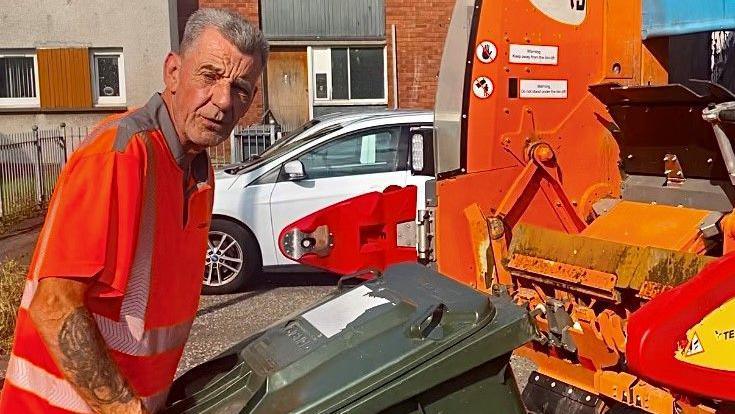
Bobby Davis has been a refuse collector in Edinburgh for 20 years
- Published
Bobby Davis took part in the bin strike which saw rubbish pile up in the streets of Edinburgh two years ago - and says it was a nightmare that he doesn’t wants to relive.
An eight-day stoppage by refuse workers is due to take place across Scotland from 14 August.
That would again lead to the bins not being emptied during the Edinburgh Festival.
Bobby described the 12-day strike in 2022 as “disgusting and terrible”.
And the 65-year-old refuse collector said: "I feel full of dread at it happening again."
I feel sick to the stomach over bin strike threat
- Published3 July 2024
Union confirms dates for bin strikes across Scotland
- Published30 July 2024
GMB, Unison and Unite members voted to take industrial action in 26 of Scotland's 32 councils after rejecting a pay deal from council body Cosla.
Cosla said the deal was at the limit of affordability for councils but it was committed to further talks with unions.
If the strike goes ahead, it will happen during the world’s largest arts festival, which takes place in Edinburgh throughout August.
Many business owners in the capital's most historic street, the Royal Mile, have called for the strike to be halted.
Daniela Scott, who runs her father's Italian restaurant, said she felt "sick to her stomach" and William Burdett-Coutts, who runs one of the Edinburgh Fringe's biggest venues, said it should be stopped "at all costs".
Driver crew leader Bobby said he agreed with them.
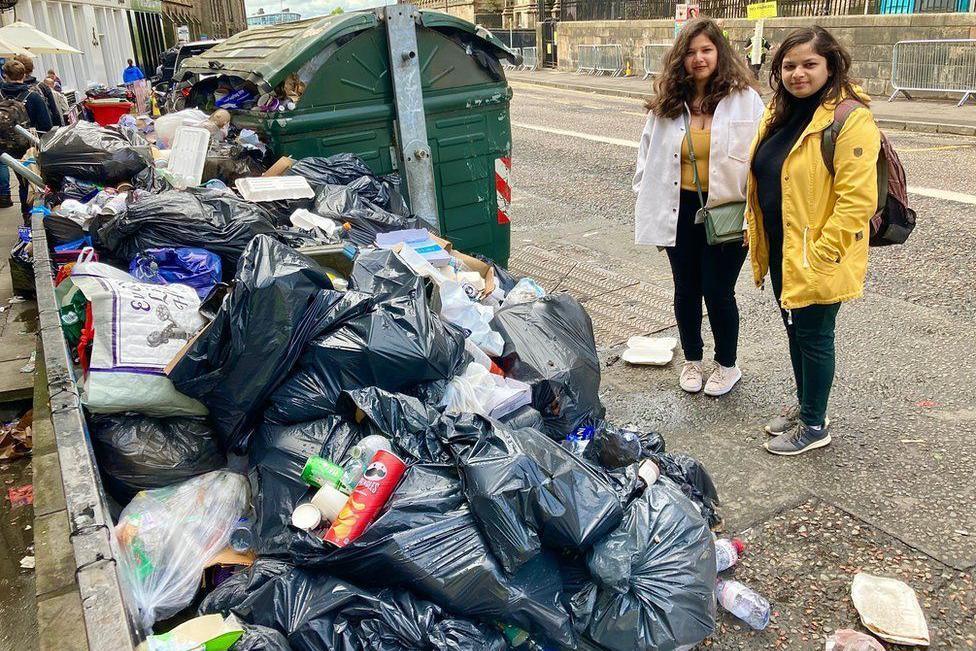
A strike two years ago led to piles of rubbish across the city
He said: "I feel sorry for them because they are right on the front line.
"I feel sorry that they have to go through this again because they are losing business with all the rubbish lying outside their shops on the streets, it's not nice.
"We do not want to strike. We want to resolve this as soon as possible. The council has had plenty of time to come up with a deal for the members but they have just dragged their heels. It could have been avoided."
City of Edinburgh council leader, Cammy Day, said he was disappointed that negotiations between the Scottish government, local authority body Cosla and the unions had so far failed to avert the strike action across Scotland.
He added that urgent progress was needed if significant disruption was to be prevented.
'Felt embarrassed'
Bobby said he was relieved when the 2022 strike ended.
He said: "I was surprised how much rubbish there was. Being the festival obviously the city is going to generate more rubbish.
"I felt embarrassed during the festival with all the visitors to the city when I saw all the rubbish piling up."
Bobby said he wished he could have cleaned up but felt helpless as workers could not do anything while industrial action was going on.
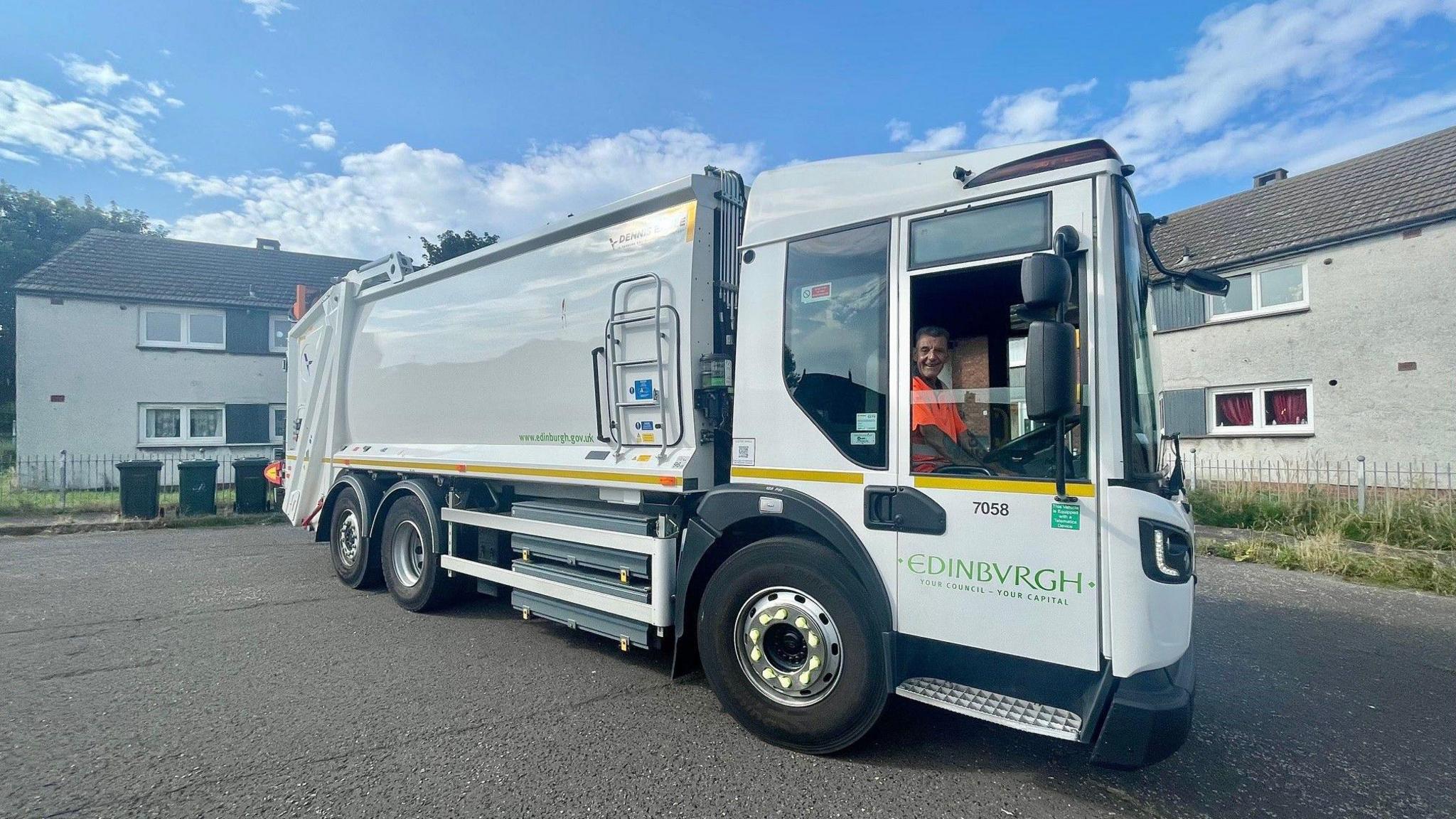
Bobby drives an electric refuse vehicle
He said one reason he was dreading another strike was the amount of work involved in cleaning up the rubbish afterwards.
Bobby added: "It's a lot of hard work for the guys when we do come back to clear it up.
"It has a big impact on the routes because you are lifting double the stuff.
"We were out at the weekends to catch up and because the rubbish had been lying around for so long it was disgusting.
"The bags lying beside the bins were all wet and had been ripped open with the seagulls, it was a total mess and a horrible smell and we saw a lot of rats.
"We just got on with it. The first two or three weeks was a bit of a nightmare until we caught up and got everything back to normal."
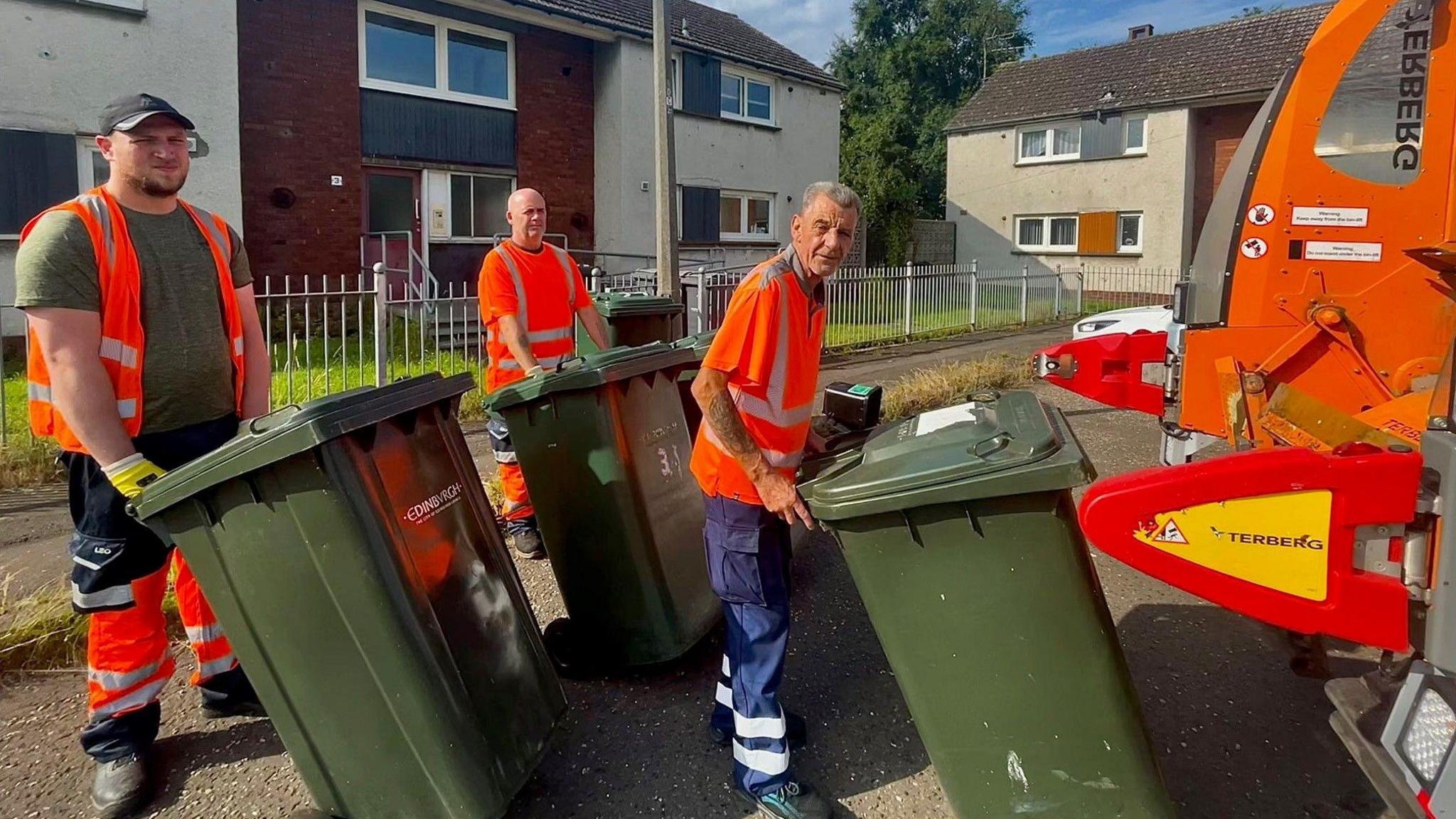
Refuse collectors in Scotland were offered a 3.2% wage rise, which they refused
A refuse truck weighs 27 tonnes when empty. It can take 11 tonnes before it needs to be emptied.
Bobby drives one of the fleet's new electric vehicles, which he fills twice every day.
He has been in the cleansing department for 20 years since changing careers from car mechanic.
Bobby – who was on the picket line at Seafield for 12 days during the last strike - said the profession had finally been recognised by the public after the previous strike.
"Nobody wants to go on strike because you are losing money," he said.
"After the strike when we went back the public were saying to us when we were going down the streets: ‘Oh thank goodness you're back, we missed you’.
"They said they didn't realise how much they missed the bin collections not getting done. They said they had had to store the rubbish in their baths and huts, it was unbelievable.
"A lot of people take the bin collection for granted and it’s when things like a strike happens that's when you do get recognised.
"It made us feel good that we are appreciated."
The grandfather-of-two, who lives in Dalkeith but works in Edinburgh, said the public had been very supportive during the last strike.
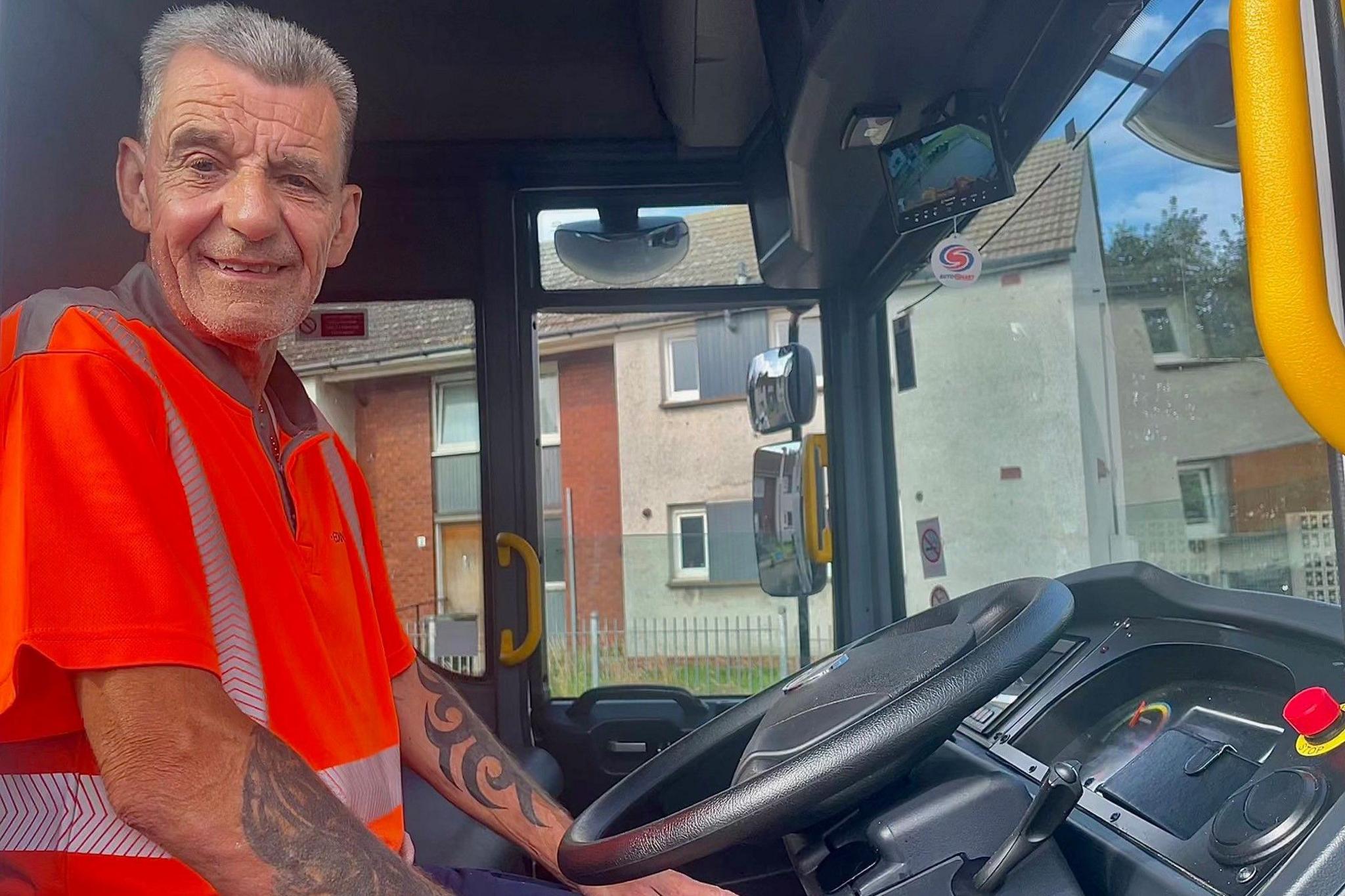
Bobby says he hopes the strike does not go ahead
Councillor Day said he firmly believed that "all council colleagues deserve to be paid fairly for the work they do and have every right to take this action and have their voices heard".
He added: "As the lowest funded council in Scotland, it’s time for the Scottish government to properly fund our capital city and its services."
A Scottish government spokeswoman said it had no formal role in local pay negotiations.
She said: "However, we absolutely recognise the importance of supporting meaningful dialogue to reach agreement and avoid industrial action.
"Finance Secretary Shona Robison facilitated a further constructive and positive meeting with Cosla and political group representatives yesterday (Wednesday), and the Scottish government continues to work constructively with local government to support efforts to reach a fair pay deal.”
A spokesman said the government had made record funding available to councils this year, including just over £1bn to to Edinburgh City Council.